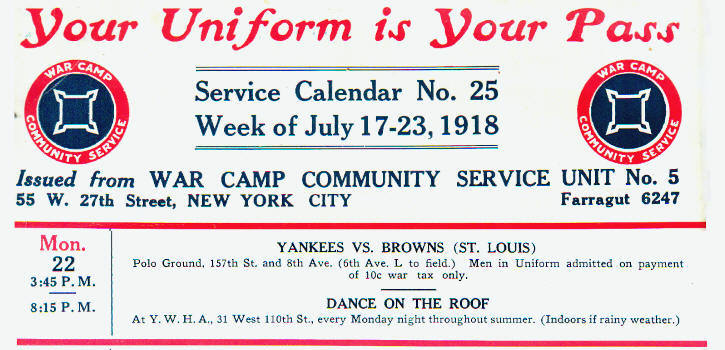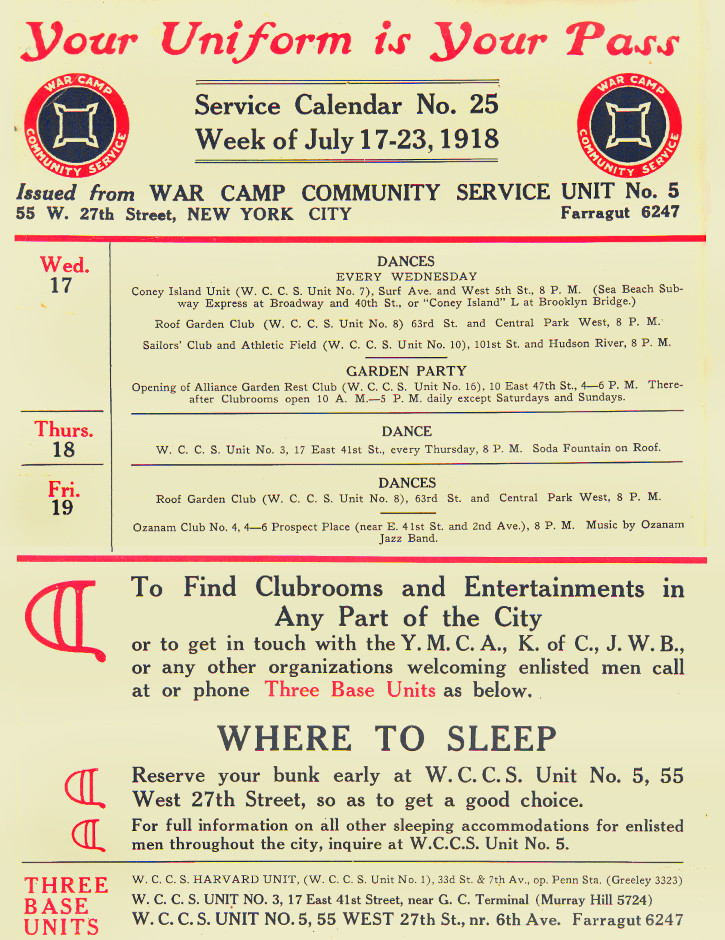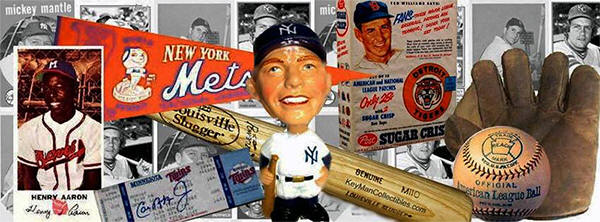| |
 |
|
| |
|
|
| |
|
|
| |
Days after the U.S. entered the first
World War in April of 1917, President
Woodrow Wilson created a new Federal
Agency, the Commission on Training Camp
Activities. The program was designed to
clean up the immoral influences
associated with encampments and their
surrounding communities. It was a great
concern to the American Family, for the
moral destruction of their sons, and
husbands going off to war.
The program would help surround our troops with a healthy, cheerful
environment, and to ensure the purity
of the camp environment. Training camps
would then mold not only soldiers, but
model citizens who after the war would
return to their communities.
The Commission worked with existing agencies who were already working to
support the troops and, when necessary,
supplemented their activities. One of
these existing agencies was the
Playground and Recreation Association
of America, who at the request of the
Commission established the War Camp
Community Service (WCCS). Most of the
existing war support organizations
concentrated their efforts overseas or
in the camps. The WCCS took on the task
of supporting the troops and their
families outside of the camps through
the fostering of community hospitality
and recreation.
War Camp Community Service base units were set up in communities across
the country. This War Camp Community
Service Calendar was published weekly
for three units located in New York
City. It provided information on where
to sleep, find clubhouses, and
entertainment, such as; Sight Seeing
bus trips in New York, Vaudeville
Shows, dances, and a ball game on July
22 at the Polo Grounds, Yankees vs.
Browns (ST. Lois). "Men in uniform
admitted on payment of .10¢ war tax
only" The troops witnessed a true
oddity.
With the score tied 4-4, the game
between the Yankees and Browns was
called on account of darkness by
volunteer umpire Bits Bierhalter, after
15 innings. The Umpires were a no-show
at 3:30, the time set for the start of
the game. Managers Miller Huggins, and
Jim Burke wearied off the boos they
were receiving from fans by calling a
conference under the shadows of the
Polo Ground grandstands. It didn't
occur to the two managers that they had
the right to choose a player from each
team to replace the missing umpires.
But, someone in the press box suggested that the famous ex-ballplayer Mike
Donlin was a spectator, and Huggins
approved Donlin as his choice. Burke
said he had a real umpire in the
clubhouse, "Two Bits" Bierhalter,
trainer of the Browns. "Two Bits"
served as umpire in the minors for
twenty years, and took his place behind
the plate, Donlin in the field.
Two umpires were typically assigned to a series in 1918. George
Hildebrand, and Billy Evans were to
work this four game set played in
Yankee Stadium. The Yankees were
scheduled to play the St. Louis Browns,
on July 19, 20, 22, and 23. The July 19
game was a rainout, and a double header
was played on the 20th. July 21, was an
off day. After the two missed the game
on the 22, only one official umpire was
assigned to the game played on the
23rd, Dick Nallin.
The absence of the regulars led to the report that the American league
umpires had gone on strike, but
investigation showed that their failure
to appear was probably a
misunderstanding. According to
information available Evans and
Hildebrand received word that the
American league season was to close at
once and, accordingly, packed up their
uniforms and departed for their homes.
On July 22, Ban Johnson, President of the American league, and his
secretary William Harridge, left for
Cleveland to attend a special meeting
of the club owners, at which it was
expected they will vote to obey
Secretary of War Backers' work or fight
order by disbanding their teams, so
that their players may enlist or engage
in war work.
|
|
| |
|
1918 War Camp Community
Service Calendar |
 |
|
Click to enlarge to Full Image |
|
|
KEYMAN COLLECTIBLES
RELATED RESOURCES |
|
|
|


